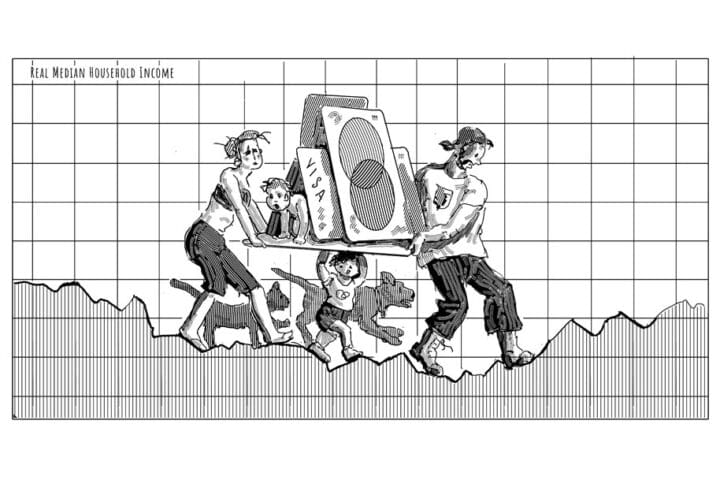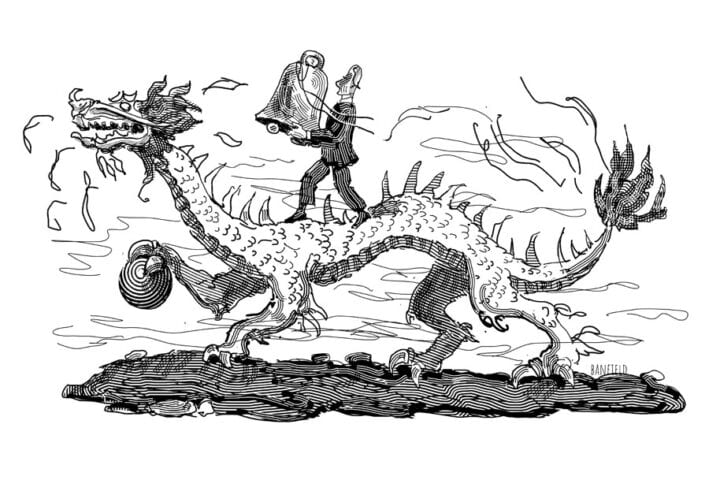Harry Jaffa’s Debt to W.B. Allen
It’s a shame that in his discussion of a recent symposium on Harry V. Jaffa’s Crisis of the House Divided (“The Continuing Crisis,” Fall 2023) Glenn Ellmers did not spend more time on W.B. Allen’s essay, “What Harry Jaffa Taught,” which is the only one of the contributions that will remain as an indispensable source for the serious study of political philosophy.
Allen recognizes Jaffa’s key insight: “Jaffa did not teach the art of turning theory into practice; rather, he elicited from political practice the urgency of theoretical reflection.” That approach meant rejecting the notion that America was an example of “low but solid” politics and realizing instead, in his “second sailing” (see, for example, A New Birth of Freedom), that “civil religion and all such accommodations are contained within the realm of changeable natural right and cannot, therefore, convey sacralizing force.”
As a college student campaigning for Barry Goldwater in 1964 and opposing the newly passed Civil Rights Act as a bureaucratic attack on freedom, Bill Allen had led the way on Jaffa’s becoming political, for philosophy’s sake. One need only point to the four positive mentions of Woodrow Wilson in Crisis of the House Divided to show how far Jaffa was from where he would end up. Jaffa fought the progressivism in his soul, just as all of us who honor him today must fight the historicism in ours.
Without Bill Allen it is unlikely there would be a Claremont Institute for the simple reason that Jaffa would have been in essentials what we know today as an “Eastern” Straussian. The political bearings of Allen and the other “Claremonsters” drew Jaffa in directions he would not have otherwise taken. Fortunately, the flaws of this Crisis symposium, deftly exposed by Ellmers, oblige a symposium on Jaffa’s New Birth of Freedom. Allen and Ellmers might co-edit it.
Ken Masugi
Rockville, MD
Lunching with Antonin Scalia
In his well-written review of James Rosen’s Scalia: Rise to Greatness, 1936–1986, Ilya Shapiro agrees with those who would describe the late Supreme Court Justice as someone “larger than life” (“Nino the Great,” Fall 2023). So would I, having had the great honor to have known him well for many years.
While assigned to the U.S. Embassy to the Holy See, one evening in the summer of 1991, I was asked by Ambassador Thomas Melady if I would take his place and attend a conference at the Vatican. I agreed, and that unplanned visit gave rise to my first meeting with Justice Antonin Scalia and the beginning of a friendship that lasted more than a quarter century.
When I retired, Justice Scalia invited me to hear oral arguments at the Court, and then have lunch with him in his chambers, a scenario that lasted ten years. Occasionally during our lunch the phone would ring and the first words he would utter invariably were: “Brother Clarence, how may I help you?” After hearing the oral arguments in later years, we would have lunch at an Italian restaurant, a practice which lasted another decade. As a result, I came to learn a great deal about Justice Scalia.
During a lunch, I asked him why his name was Antonin, not Antonino, which is the Italian way of writing it. Scalia responded that his father, born in Sicily and later a professor of romance languages at Brooklyn College (my alma mater), “thought that Antonin would sound more American.”
When I asked how he knew about his nomination to the high court, he said he was aware he was on “the short list” and when Attorney General Edwin Meese called and said that President Reagan wanted to meet him at the White House, Scalia, with that impish grin, said, “I didn’t think President Reagan wanted to talk to me about the budget.”
Scalia had initially sought to enter the priesthood. What, then, changed his mind? Rosen claims that Scalia believed that God “was not calling me.” That may be true, but the Justice provided another version: his father explained to him that were he to enter the priesthood the family name of Scalia would disappear, for he was an only child and there were no first cousins to carry on the name. The rest, as they say, is history.
I would be remiss if I did not relate a February 2020 incident involving the late Justice. On the anniversary of his death, I visited his grave and was arranging flowers when a woman came up to the graveside and stopped. When she said she had come to pay her respects to the Justice, I asked how she knew him, and she replied she had never met him. Why, then, the visit? I believe I quote her correctly: “He was a great gift to the country and a man whom I admired for the good he did.” Justice Antonin Gregory Scalia was, and forever will be, our “man for all seasons.”
Vincent Chiarello
Reston, VA
Strongmen and Would-Be Strongmen
Even though we may be at different points on the political spectrum, I find much to agree with in Allen Guelzo’s thoughtful review of my book, American Midnight: The Great War, a Violent Peace, and Democracy’s Forgotten Crisis (“Woodrow Wilson’s Red Scare,” Fall 2023). The quotation he cites from Herbert Croly is certainly a good warning against what Guelzo calls the “passion for top-down control” and “an attitude of we-know-best.” The only thing I would add is that the temptation to such arrogance is by no means limited to people who consider themselves progressive: “I alone can fix it,” Donald Trump declared in 2016. We live in a world teeming with leave-it-all-to-me strongmen and would-be strongmen, both Left and Right.
One small correction: Guelzo says that on April 2, 1917, President Wilson asked Congress to declare war on Germany and its allies. Germany yes, but not the others. The United States did not declare war on Austria-Hungary until many months later, and never did so against Germany’s other allies, Bulgaria and the Ottoman Empire.
Adam Hochschild
Berkeley, CA
Allen C. Guelzo replies:
Adam Hochschild is correct: it was, legally, a declaration of war against Germany only on April 2, 1917. The same, by the way, holds true for the ending of hostilities. It’s customary to treat Armistice Day (November 11, 1918) as the “end” of World War I, but in fact the war ended on different days, and with different agreements, for Austria (November 4) and the Ottomans. By that point, Austria-Hungary had practically ceased to exist, and Hungary negotiated a separate armistice on November 13. The Ottomans had already signed an armistice with the British on October 30.




